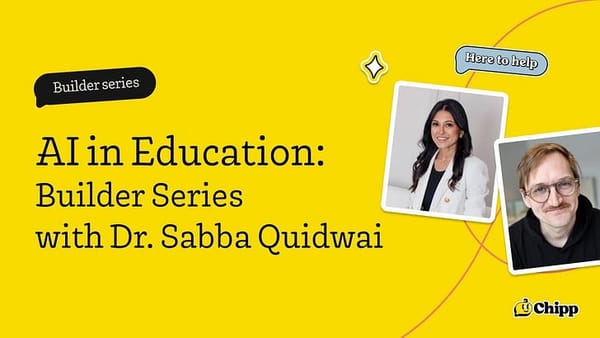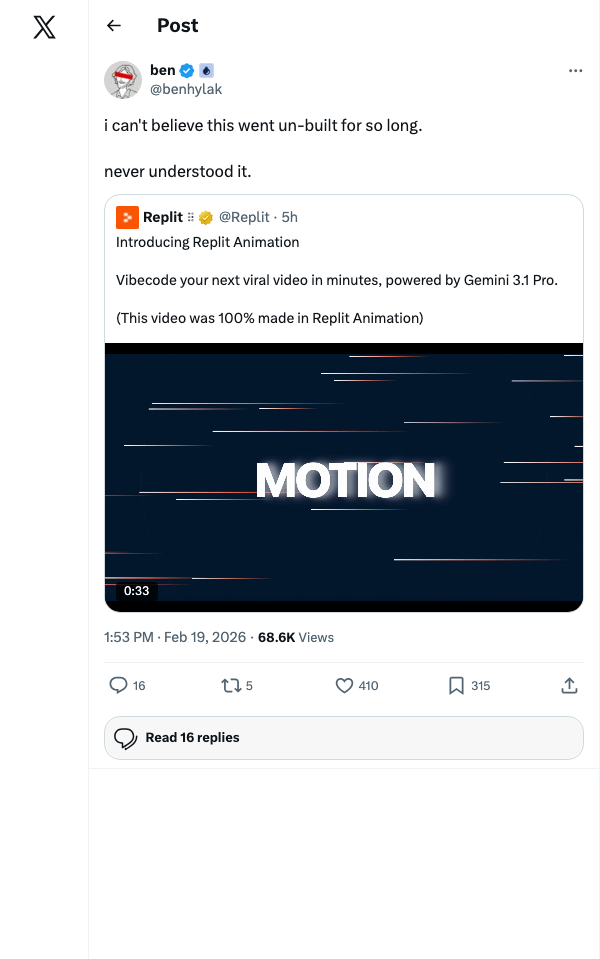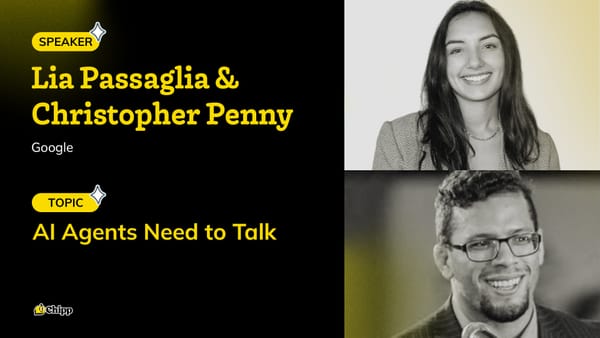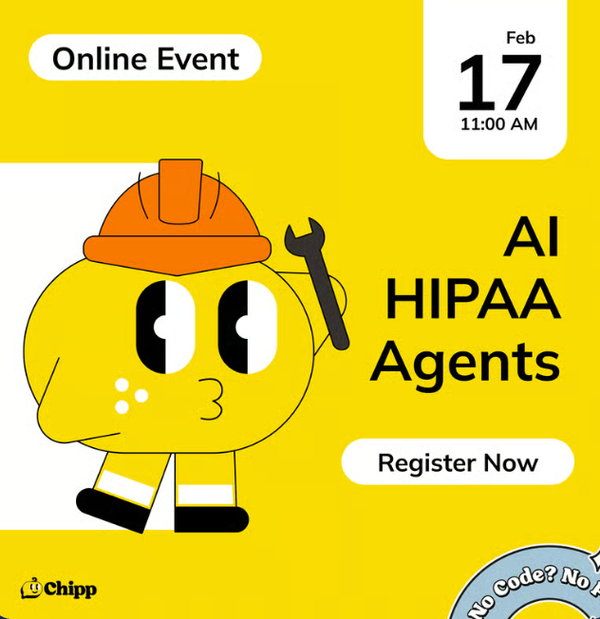In our latest episode of the Chipp Builder Series, Scott had the pleasure of speaking with Dr. Sabba Quidwai, Founder of Designing Schools, who is bringing humanity to the heart of AI. Sabba shared her invaluable insights on how AI is transforming education and how schools can integrate AI beyond just using tools, focusing instead on making AI a true team member in the educational process.
You Don't Have to Start from Scratch Alone
Unlike previous technologies where educators had to create everything themselves, AI offers a collaborative partner that helps turn your ideas into reality. Today, ideas are everything. You bring the vision and expertise, while AI provides the execution, making blank canvas creation more accessible than ever before.
This represents a fundamental shift in how educators approach new initiatives. The blank slate problem that plagued earlier technology adoption, where teachers often avoided open-ended creative tools in favor of pre-packaged solutions, is being eliminated. AI becomes the co-creator that removes technical barriers while preserving the educator's vision and expertise. This evolution makes innovation accessible to all educators, regardless of their technical abilities, allowing them to focus on what truly matters: their unique instructional ideas and pedagogical approaches.
Teachers Won't Be Replaced, But Their Role Must Evolve With AI
When tech leaders talk about AI replacing teachers, they're envisioning traditional classroom roles that haven't adapted to modern education. Dr. Quidwai explains why educators must evolve their relationship with AI, working alongside it as a teammate rather than competing against it. This critical transition period offers teachers a window of opportunity to upskill and redefine their value in ways that AI cannot replicate.
This perspective offers a nuanced take on the future of teaching that goes beyond the simplistic "AI will replace teachers" narrative. Teachers who position themselves as experience designers, emotional intelligence coaches, and critical thinking facilitators will thrive in an AI-enhanced educational landscape. The key insight here is that educators need to recognize this evolutionary moment not as a threat, but as an opportunity to shed administrative burdens and double down on the uniquely human aspects of education that make the greatest impact on students' lives.
How Chipp Democratizes AI for Education
Scott demonstrates how Chipp makes AI accessible for entire school communities, even for those who don't consider themselves tech-savvy. Unlike other AI platforms, Chipp allows educators to train custom AI agents with their expertise and share them with students and staff, creating personalized learning experiences in any language. This short demo showcases how schools can easily implement AI tools that reflect their unique teaching methodologies and knowledge.
The demonstration reveals how thoughtfully designed AI tools can address long-standing equity issues in education. By enabling multilingual tutoring and personalized learning at scale, Chipp's approach helps schools overcome resource limitations that have traditionally restricted educational access. What's particularly powerful about this platform is how it preserves and amplifies a school's unique pedagogical approaches rather than forcing educators to conform to pre-built systems. This represents a true democratization of AI, putting the power of custom AI development into educators' hands without requiring technical expertise.
The key takeaway is clear: schools that thoughtfully integrate AI with intention and purpose will thrive, while those that resist or implement it without strategy risk being left behind. As Sabba emphasizes, this isn't about replacing teachers but evolving education to create more meaningful learning experiences that prepare students for a future where AI is ubiquitous. By treating AI as a collaborative team member with specific roles and responsibilities, educators can focus on what they do best: inspiring, connecting, and mentoring the next generation.




